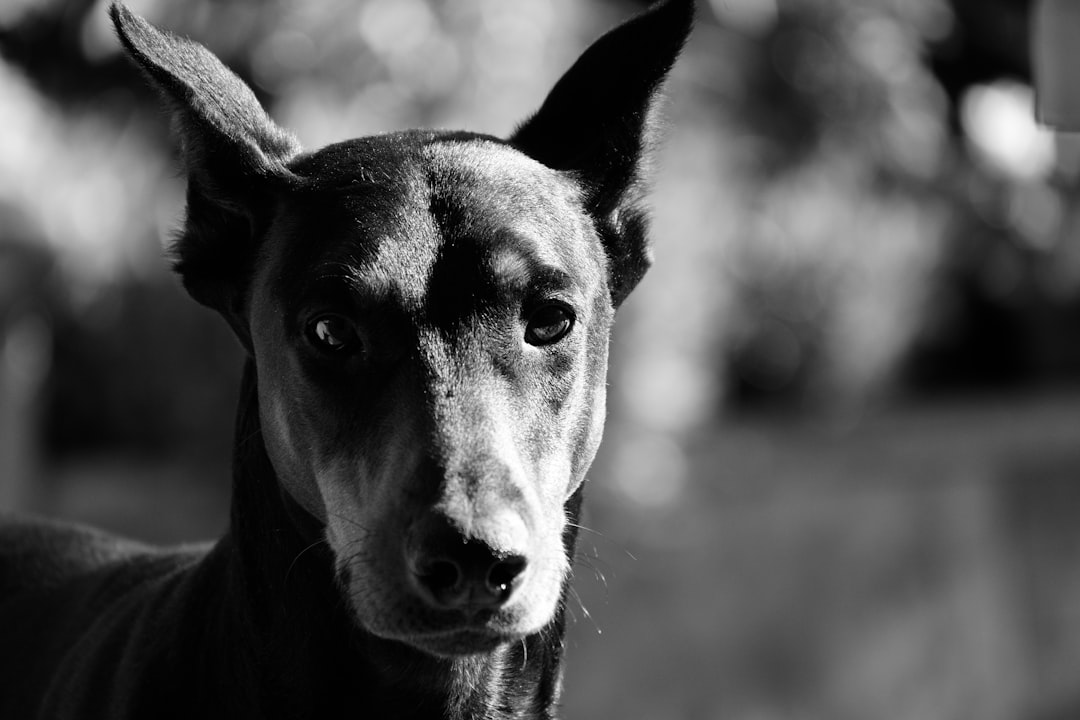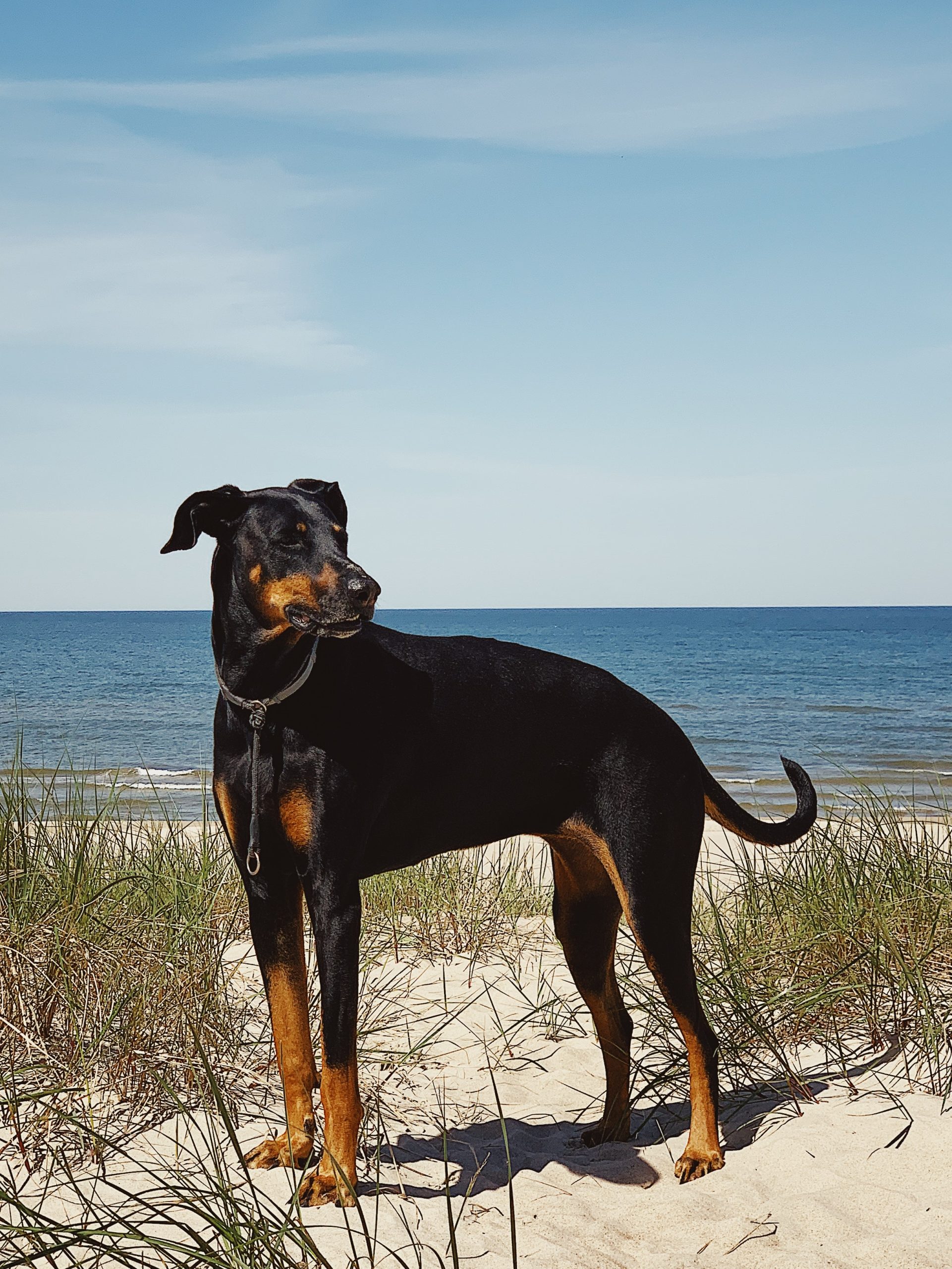Unleashing the Power and Loyalty of Doberman Pinschers
A look into the breed standards, characteristics, and temperament of Doberman Pinschers, including their physical appearance, loyalty, intelligence, and potential challenges.
Doberman Pinschers: A Look into Breed Standards
The American Kennel Club (AKC) provides a comprehensive outline of the breed standards for Doberman Pinschers, shedding light on the physical appearance and characteristics that define this remarkable breed. According to the AKC, Doberman Pinschers are known for their distinctive medium to large build, marked by a muscular and imposing physique that exudes strength and agility. Their appearance is further accentuated by their alert and fearless expression, giving them an air of confidence and vigilance that aligns with their role as natural protectors and working dogs.
In addition to their physical attributes, the AKC underscores the breed’s power, intelligence, and fearlessness, which are essential traits in defining the Doberman Pinscher. These characteristics not only contribute to their impressive appearance but also speak to their innate abilities as capable and fearless guard and police dogs. The breed’s historical use as guard and police dogs in the late 19th century further highlights the significance of these breed standards, emphasizing the Doberman Pinscher’s roots as a vigilant and protective companion. Their original purpose as working dogs underscores their exceptional traits and reinforces their reputation as a breed that embodies strength, intelligence, and unwavering vigilance.
Understanding the Characteristics and Temperament of Doberman Pinschers
When it comes to the characteristics of Doberman Pinschers, their loyalty and intelligence stand out as defining traits that make them exceptional companions. This breed is known for forming strong bonds with their family members and displaying unwavering loyalty in protecting them from potential threats. For example, many Doberman owners recount stories of their pets displaying remarkable acts of protectiveness, such as alerting them to strangers approaching the house or actively trying to comfort them when they detect distress.
In addition to their loyalty and intelligence, Doberman Pinschers are also recognized for their protective nature, which makes them well-suited as family pets. Their natural inclination to guard and protect their loved ones is a testament to their strong sense of responsibility and devotion. However, it’s important to note that the breed may exhibit challenges such as aggression and stubbornness if not provided with strong leadership and early socialization. For instance, without proper training and guidance, Dobermans may display territorial behavior or become overly protective, potentially leading to conflicts with other pets or visitors. Therefore, it’s crucial for owners to understand the breed’s need for socialization and consistent training to maintain a harmonious environment in the household.
 Nurturing the Health and Well-being of Doberman Pinschers
Nurturing the Health and Well-being of Doberman Pinschers
The Doberman Pinscher is a magnificent breed known for its strength, agility, and overall athleticism. As with any breed, they are prone to certain genetic health issues such as hip dysplasia and heart conditions, which can significantly affect their quality of life and lifespan. For example, hip dysplasia, a hereditary condition, can cause discomfort and mobility issues for the dog, while heart conditions can lead to serious cardiac complications. Therefore, responsible Doberman owners must be vigilant in monitoring their pet’s health and seek prompt veterinary care at the first sign of any health concerns.
In addition to genetic predispositions, routine grooming and healthcare are crucial for the well-being of Doberman Pinschers. Regular grooming not only keeps their coat healthy and shiny but also provides an opportunity for owners to check for any abnormalities or skin issues. Furthermore, dental care, nail trims, and ear checks are essential to prevent dental diseases, overgrown nails, and ear infections, which can impact the dog’s overall health. By prioritizing these aspects of care, owners can ensure that their Doberman remains in optimal health, allowing them to enjoy a high quality of life for many years.
Training and Socialization for Doberman Pinschers
When it comes to early training and socialization, Doberman Pinschers require careful and consistent guidance to ensure that their loyalty and intelligence are effectively channeled. For example, exposing them to various environments, people, and animals at a young age can help them develop into well-rounded and well-behaved companions. Additionally, positive reinforcement techniques, such as rewarding good behavior with treats or praise, are highly effective in molding their behavior in a positive direction.
Furthermore, it’s crucial to understand that Doberman Pinschers have a protective nature, which can manifest as aggression if not properly managed and directed through training. For instance, obedience training and socialization classes can aid in teaching them appropriate behaviors and responses in different situations, ensuring that they interact safely with family members, guests, and other pets. By providing consistent and structured training, owners can help their Dobermans become confident, obedient, and well-adjusted members of the household, contributing to a harmonious and safe living environment for everyone involved. This approach not only fosters a deep bond between the dog and its family but also minimizes the likelihood of behavioral issues emerging as the dog matures.
Doberman Pinschers as Companions and Protection Dogs
Doberman Pinschers are known for their dual nature as both affectionate companions and reliable protection dogs. Their loyalty, intelligence, and protective instincts make them suitable as family pets, provided they are trained and socialized effectively. For example, a well-trained Doberman can form a deep bond with its family members, showing affection and devotion while also being alert and protective when necessary.
In addition to their role as family companions, Doberman Pinschers possess characteristics that make them excellent protection dogs. Their imposing appearance, fearlessness, and loyalty contribute to their effectiveness in guarding and protecting their home and family [4]. For instance, their natural guard dog instincts and high trainability enable them to excel in protection work, making them a popular choice for security and law enforcement roles. However, it is important to note that without proper training and socialization, their protective nature can manifest as aggression and territorial behavior, underscoring the importance of responsible ownership and training practices.


